March 10, 2014 •
Canada RCMP Investigating Illegal Lobbying
The Royal Canadian Mounted Police (RCMP) is investigating allegations of illegal lobbying by a former senior adviser to Prime Minister Stephen Harper in connection with work for an energy advocacy group in Calgary. The RCMP says after Bruce Carson left […]
 The Royal Canadian Mounted Police (RCMP) is investigating allegations of illegal lobbying by a former senior adviser to Prime Minister Stephen Harper in connection with work for an energy advocacy group in Calgary. The RCMP says after Bruce Carson left the Office of the Prime Minister (PMO) he was paid for his top level involvement with federal contacts and to influence a new national energy strategy.
The Royal Canadian Mounted Police (RCMP) is investigating allegations of illegal lobbying by a former senior adviser to Prime Minister Stephen Harper in connection with work for an energy advocacy group in Calgary. The RCMP says after Bruce Carson left the Office of the Prime Minister (PMO) he was paid for his top level involvement with federal contacts and to influence a new national energy strategy.
As a past senior adviser to Harper, Carson is subject to a five-year ban on lobbying under the Lobbying Act.
Lobbying Commissioner Karen Shepherd initiated a probe of Carson’s lobbying activities for the Canada School of Energy and Environment and a business-funded group called the Energy Policy Institute of Canada (EPIC). Shepherd referred the allegations to the RCMP in July 2012.
EPIC’s lawyers assumed the group would be in compliance if Carson’s job description was to communicate “for the purpose of information exchange and not to represent EPIC’s view, opinion, or to ask for a decision from government.”
March 7, 2014 •
Quebec Premier Calls Election for April 7
Pauline Marois, the premier of Quebec, has called a general election to be held on April 7. Currently, elections in Quebec only take place upon a decree by the premier. Beginning in 2016, elections will have set dates. When […]
 Pauline Marois, the premier of Quebec, has called a general election to be held on April 7. Currently, elections in Quebec only take place upon a decree by the premier. Beginning in 2016, elections will have set dates.
Pauline Marois, the premier of Quebec, has called a general election to be held on April 7. Currently, elections in Quebec only take place upon a decree by the premier. Beginning in 2016, elections will have set dates.
When an election is called in Quebec, the legislative assembly dissolves (adjourns) and voters chose an entirely new one. Candidates have 33 days to campaign for the upcoming election.
Since Quebec has a parliamentary system of government, the leader of the party who garners the most assembly seats becomes the premier.
February 10, 2014 •
Rob Ford’s Behavior Inspires Ottawa Ethics Code Review
The Ottawa, Ontario ethics code is being evaluated today against the backdrop of Toronto Mayor Rob Ford’s recent public indulgences and transgressions. At an event being held at Carleton University titled “Could Rob Ford’s Antics Happen in Ottawa?” Mayor Jim […]
 The Ottawa, Ontario ethics code is being evaluated today against the backdrop of Toronto Mayor Rob Ford’s recent public indulgences and transgressions. At an event being held at Carleton University titled “Could Rob Ford’s Antics Happen in Ottawa?” Mayor Jim Watson and Integrity Commissioner Robert Marleau will assess whether the city code helps earn the public trust.
The Ottawa, Ontario ethics code is being evaluated today against the backdrop of Toronto Mayor Rob Ford’s recent public indulgences and transgressions. At an event being held at Carleton University titled “Could Rob Ford’s Antics Happen in Ottawa?” Mayor Jim Watson and Integrity Commissioner Robert Marleau will assess whether the city code helps earn the public trust.
According to the Ottawa Star, the discussion will include questions such as whether the ethics code goes beyond legal compliance to address ethical conduct, whether councillors are held accountable for ethical transgressions, and whether elected officials are treated differently than municipal employees.
Ford has received intense media scrutiny for admitting to smoking crack cocaine while holding the position of mayor, using lewd language when talking to the media, and engaging in public episodes of apparent drunkenness.
February 5, 2014 •
Canada Fair Elections Act Introduced
The Harper government introduced the Fair Elections Act to amend the Canada Elections Act on Tuesday, February 4. Bill C-23 will increase contribution limits to political parties from $1,200 to $1,500, increase penalties to $100,000 for intentional violations by corporations, […]

The Harper government introduced the Fair Elections Act to amend the Canada Elections Act on Tuesday, February 4.
Bill C-23 will increase contribution limits to political parties from $1,200 to $1,500, increase penalties to $100,000 for intentional violations by corporations, and will shift decision-making powers regarding investigations from the Chief Electoral Officer to an independent panel.
February 4, 2014 •
Former Quebec Premier Accused of Accepting Illegal Contribution
Former Quebec premier, Jean Charest, is accused of accepting $3,000 from a lobbyist while in office. The payment occurred just days before the 2008 general election and was given by a senior executive at a windmill manufacturing company. Charest denies […]

Former Quebec premier, Jean Charest, is accused of accepting $3,000 from a lobbyist while in office. The payment occurred just days before the 2008 general election and was given by a senior executive at a windmill manufacturing company.
Charest denies the allegation, according to current premier Phillipe Couillard. The allegation stems from the testimony of Louis-Pierre Lafortune, who was an investor in the same windmill manufacturing company.
The lobbyist who allegedly delivered the check to Charest has not been identified. The windmill company went bankrupt in 2010.
January 16, 2014 •
Quebec Doctors Accused of Illegal Lobbying
Drs. Gaétan Barrette and Frédéric Desjardins have been accused of engaging in illegal lobbying of former Quebec Health Minister Philippe Couillard. Barrette and Desjardins wrote a letter to Couillard regarding the ownership of private radiology clinics at a time the […]

Drs. Gaétan Barrette and Frédéric Desjardins have been accused of engaging in illegal lobbying of former Quebec Health Minister Philippe Couillard.
Barrette and Desjardins wrote a letter to Couillard regarding the ownership of private radiology clinics at a time the government was adopting legislation to regulate them. At the time they wrote the letter, neither Barrette nor Desjardins was registered with Quebec’s Registry of Lobbyists.
Prosecutors are alleging the doctors engaged in “an act of lobbying” because they could influence the legislative agenda. Barrette and Desjardins are challenging the accusation on the basis of freedom of expression. If found guilty of illegal lobbying, the doctors are subject to fines ranging from $500 to $25,000.
January 15, 2014 •
By-Elections Called in Ontario, Canada
Today, by-elections were called in Ontario, Canada, for the provincial electoral districts of Niagara Falls and Thornhill. The election for both seats will be held on February 13. Kim Craitor resigned from his seat as MPP for Niagara Falls in […]

Today, by-elections were called in Ontario, Canada, for the provincial electoral districts of Niagara Falls and Thornhill. The election for both seats will be held on February 13.
Kim Craitor resigned from his seat as MPP for Niagara Falls in September 2013. Peter Shurman resigned his assembly seat representing Thornhill last December.
January 10, 2014 •
Saskatchewan Energy and Resources Minister Calls for Procurement Reform
Saskatchewan Energy and Resources Minister Tim McMillan is spearheading an effort to overhaul the disadvantageous procurement practices of other Canadian provinces. Specifically, McMillan wants to see the preference for local suppliers abolished, which he believes is in violation of trade […]
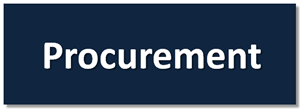 Saskatchewan Energy and Resources Minister Tim McMillan is spearheading an effort to overhaul the disadvantageous procurement practices of other Canadian provinces. Specifically, McMillan wants to see the preference for local suppliers abolished, which he believes is in violation of trade obligations between provinces. In Ontario, for example, a local company would be awarded a contract even if its bid was slightly higher than the bid of a non-Ontario company.
Saskatchewan Energy and Resources Minister Tim McMillan is spearheading an effort to overhaul the disadvantageous procurement practices of other Canadian provinces. Specifically, McMillan wants to see the preference for local suppliers abolished, which he believes is in violation of trade obligations between provinces. In Ontario, for example, a local company would be awarded a contract even if its bid was slightly higher than the bid of a non-Ontario company.
A preliminary legal opinion exists on the issue. A final legal opinion is needed to resolve the issue, and before taking the concern to a final resolution panel, the accusing province must inform the offending province of its alleged violation and give an opportunity to correct the practice.
McMillan, along with about two dozen Saskatchewan companies, has asked for action from the government.
January 9, 2014 •
Cornwall, Ontario Adds Website Section Dedicated to 2014 Elections
The Cornwall, Ontario city government’s website has been updated with a section dedicated to the 2014 Municipal Elections. Information on the Canadian municipality’s website includes a list of the nominated candidates, candidate nomination forms, and other resources. Additional material will […]
 The Cornwall, Ontario city government’s website has been updated with a section dedicated to the 2014 Municipal Elections.
The Cornwall, Ontario city government’s website has been updated with a section dedicated to the 2014 Municipal Elections.
Information on the Canadian municipality’s website includes a list of the nominated candidates, candidate nomination forms, and other resources. Additional material will be added to the website, such as include voter registration information, election employment opportunities, and key election dates. City clerk Helen Finn, as quoted the Cornwall Seaway News, said, “The website will be updated weekly, or as required.”
The next municipal election is scheduled for Monday, October 27, 2014.
January 3, 2014 •
Proposed Changes in Canadian Lobbying Laws
If you’re planning to lobby north of the border, there are a number of changes on the horizon you should be aware of. This fall saw quite a bit of activity for Canadian lobbying legislation, with two provinces introducing laws […]
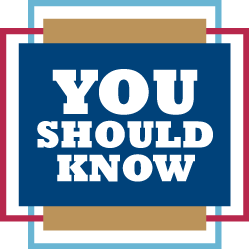 If you’re planning to lobby north of the border, there are a number of changes on the horizon you should be aware of. This fall saw quite a bit of activity for Canadian lobbying legislation, with two provinces introducing laws to create a lobbyist registration framework and one making substantial changes to its existing law.
If you’re planning to lobby north of the border, there are a number of changes on the horizon you should be aware of. This fall saw quite a bit of activity for Canadian lobbying legislation, with two provinces introducing laws to create a lobbyist registration framework and one making substantial changes to its existing law.
Saskatchewan’s Lobbyist Act would create a registrar of lobbyists, provide requirements for filing returns, which is the Canadian term for the filing for both registrations and reports, and establish definitions and penalties. The act also provides for online filing of returns. The legislation is based on the recommendations of the Standing Committee on Intergovernmental Affairs and Justice issued in 2012.
Similarly, New Brunswick’s Lobbyists Registration Act establishes a basic framework for filing returns and penalties for violations. Prior attempts at creating a lobbyist registry failed in both 2007 and 2011. Saskatchewan and New Brunswick are two of the last three Canadian provinces without lobbying laws; the three Canadian territories also do not have lobbying laws. Both governments cited a desire for providing more transparency for their citizens as the impetus for the legislation.
Ontario introduced an Act to Amend the Lobbyists Registration Act, giving a new definition for grassroots lobbying, giving more specificity on what constitutes an undertaking to lobby, requiring in-house lobbyists to file monthly reports if the lobbying is directed at a high level public office holder, and adding a requirement to report campaign contributions made under the Election Finances Act. Additional changes include revolving door restrictions and changes to penalties. The bill is currently in the Standing Committee on Regulations and Private Bills.
December 20, 2013 •
Yukon Assembly Adjourns
The 2013 fall sitting of the first session of the 33rd Yukon Legislative Assembly adjourned on December 19, 2013. During this sitting the Assembly passed the Health Information Privacy and Management Act. The act “will raise the bar on privacy […]
 The 2013 fall sitting of the first session of the 33rd Yukon Legislative Assembly adjourned on December 19, 2013.
The 2013 fall sitting of the first session of the 33rd Yukon Legislative Assembly adjourned on December 19, 2013.
During this sitting the Assembly passed the Health Information Privacy and Management Act. The act “will raise the bar on privacy and security of personal health information,” Minister of Health and Social Services Doug Graham said in a press release.
The fall sitting commenced on October 31, 2013.
November 26, 2013 •
Saskatchewan Proposes Lobbyist Registration Legislation
The Saskatchewan government has introduced legislation requiring paid lobbyists to register with the province. The impetus for the legislation is public accountability for the actions of lobbyists. The proposed law would cover people paid to lobby elected officials on behalf […]
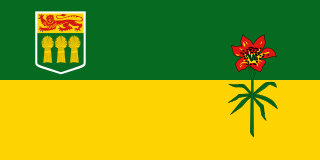 The Saskatchewan government has introduced legislation requiring paid lobbyists to register with the province. The impetus for the legislation is public accountability for the actions of lobbyists.
The Saskatchewan government has introduced legislation requiring paid lobbyists to register with the province. The impetus for the legislation is public accountability for the actions of lobbyists.
The proposed law would cover people paid to lobby elected officials on behalf of organizations or groups. It includes a provision for electronic registration.
Saskatchewan is one of the last Canadian provinces to pass legislation for lobbyist registration.
November 25, 2013 •
New Brunswick, Canada Introduces Changes to Political Process Financing Act
Legislation has been introduced capping political contributions for candidates seeking the leadership of a political party or electoral district candidacy under a political party. Currently, the Political Process Financing Act only limits contributions to a party or an independent candidate. […]
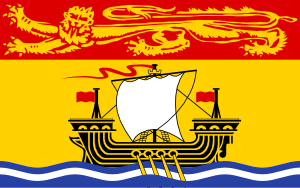 Legislation has been introduced capping political contributions for candidates seeking the leadership of a political party or electoral district candidacy under a political party. Currently, the Political Process Financing Act only limits contributions to a party or an independent candidate.
Legislation has been introduced capping political contributions for candidates seeking the leadership of a political party or electoral district candidacy under a political party. Currently, the Political Process Financing Act only limits contributions to a party or an independent candidate.
The legislation would also require disclosure of all contributions made during campaigns for party leadership or electoral districts, rather than disclosure of only the unexpended balance.
November 19, 2013 •
Bill in Legislature Would Amend Ontario, Canada’s Lobbyist Registration Act
The Ontario, Canada, Legislature’s Standing Committee on Regulations and Private Bills is considering changes to the province’s Lobbying Act. Bill 115, Lobbyists Registration Amendment Act, 2013, introduced last month, makes several amendments to the Lobbyists Registration Act, 1998. These changes […]
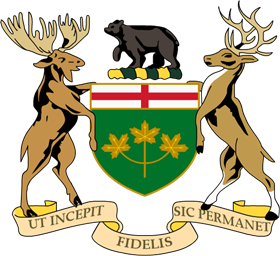
The Ontario, Canada, Legislature’s Standing Committee on Regulations and Private Bills is considering changes to the province’s Lobbying Act. Bill 115, Lobbyists Registration Amendment Act, 2013, introduced last month, makes several amendments to the Lobbyists Registration Act, 1998. These changes include requiring consultant lobbyists to register within five business days of beginning to lobbying, requiring lobbyists to file monthly reports when lobbying high-level public officeholders, and requiring consultant lobbyists to report political contributions if the Election Finance Act applies.
This bill also provides a new definition of grassroots communication and amends the definition of in-house lobbyist. Additional requirements and changes regarding penalties, revolving-door restrictions, and protections are also a part of Bill 115.
According to a bulletin by Fasken Martineu, LLP, the Progressive Conservatives are critical of the bill and the Liberal Government “would prefer to introduce its own lobbying law reforms.”
State and Federal Communications, Inc. provides research and consulting services for government relations professionals on lobbying laws, procurement lobbying laws, political contribution laws in the United States and Canada. Learn more by visiting stateandfed.com.


